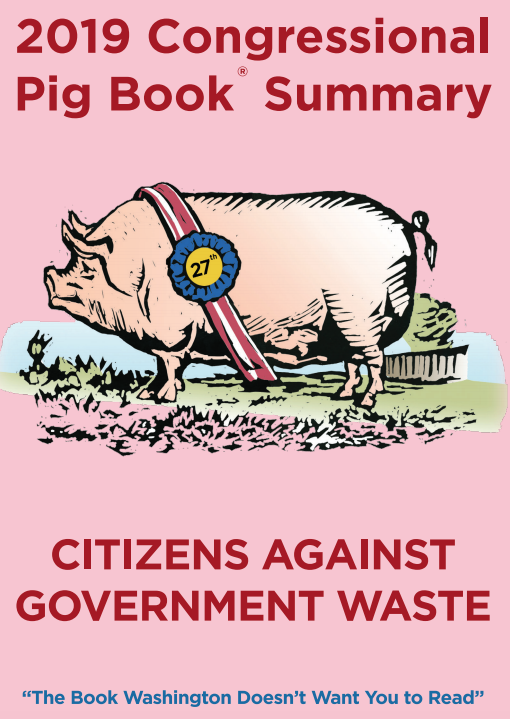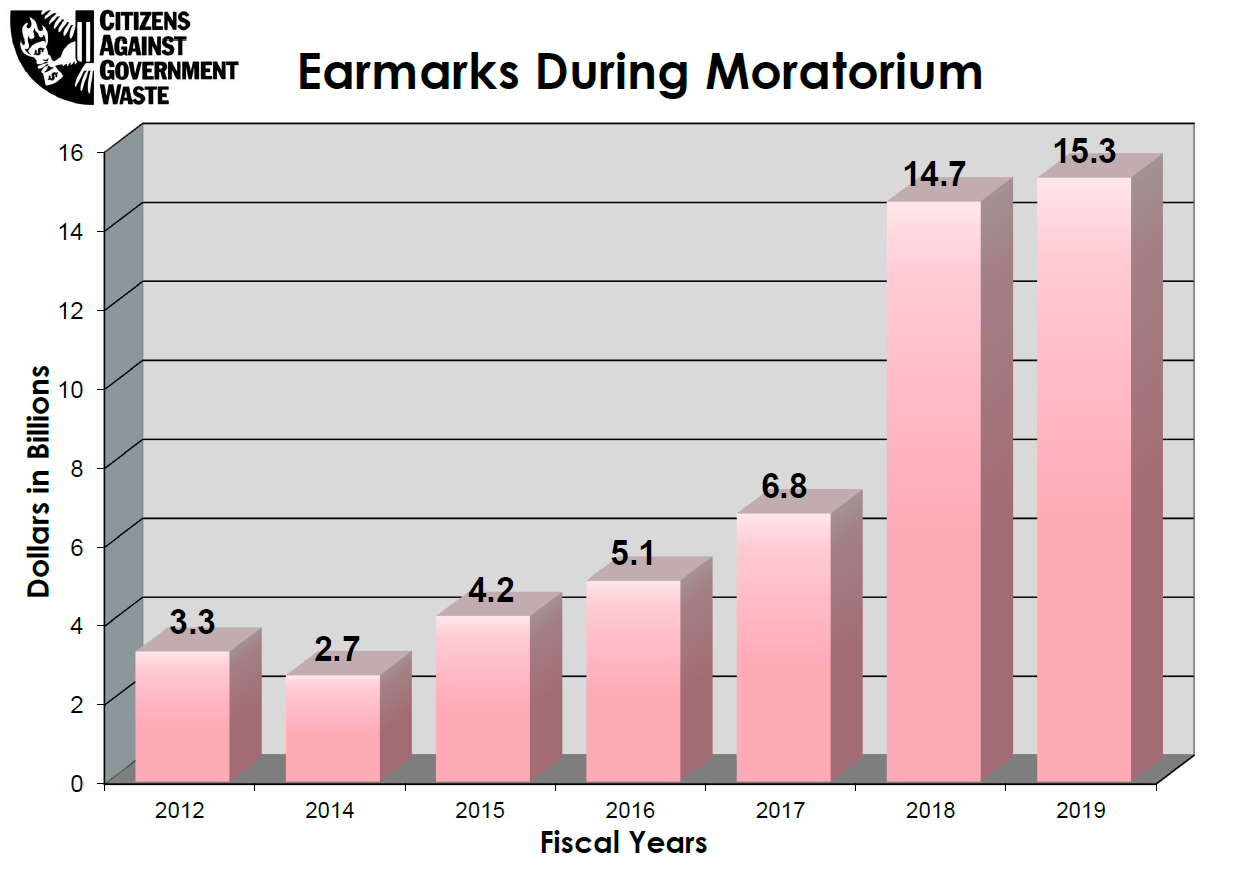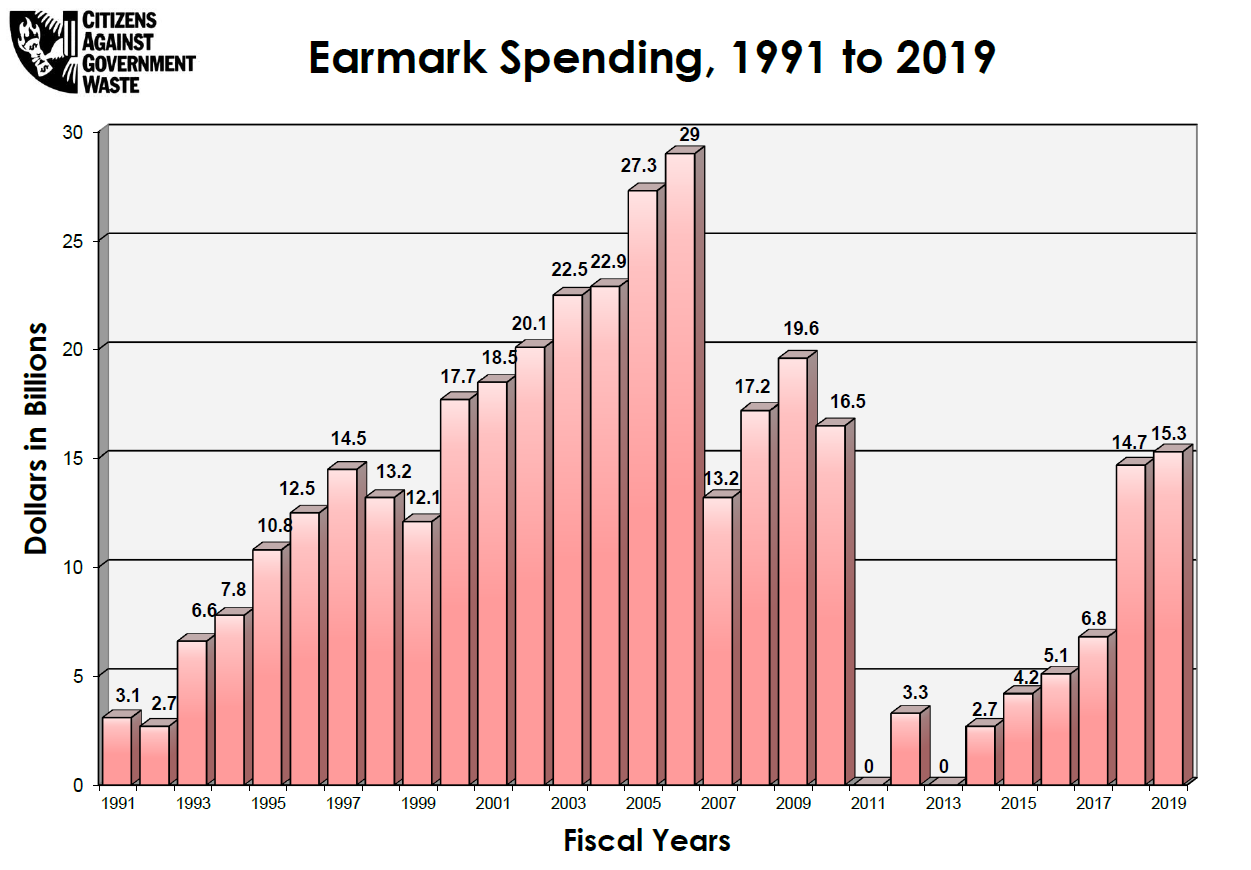Despite a ban on congressional pork-barrel projects imposed in 2011, the House and Senate snuck in 282 “earmarks” costing taxpayers $15.3 billion in last year’s spending bills, according to a watchdog group.

It was the largest amount for pet projects since the moratorium was imposed, said Citizens Against Government Waste in its latest Pig Book. It was also a 21.6% increase over 2017.
In its 27th edition of the book on congressional pork, Citizens Against Government Waste said seven of the earmarks, worth $1.8 billion, were for the F-35 Joint Strike Fighter: One cost $65 million for the “Pacific Coastal Salmon Recovery Fund” opposed by President Trump, and another $9 million funded a fruit fly quarantine program.
“The 2019 Congressional Pig Book reveals that Washington has the pork-barrel fever, and their only prescription is more earmarks. Dozens of members of Congress from both parties are publicly and privately lobbying for this wasteful and corrupt practice to return,” said Citizens Against Government Waste President Tom Schatz.
“Pushing pork does not drain the swamp and it won’t restore integrity to Washington. One of the best ways to clean up Washington’s addiction to waste is for Congress to enact a permanent, statutory ban on earmarks,” he added.
The Senate has voted for a permanent ban.
But some in the House, and President Trump, have considered removing the ban and reinstituting the practice of letting members freely include pet spending projects.

Citizens Against Government Waste said that high spending on earmarks returned with the passage in February 2018 of the Bipartisan Budget Act “which obliterated spending restraints” imposed in 2011.
The report also hit the lack of transparency on current earmark practices which, for example, allow the proponent of a project to remain anonymous, and dismissed expected congressional criticism of how it defines earmarks.

The key facts from the Pig Book being released at 10 a.m. Wednesday and provided in advance to Secrets:
- The 2019 Congressional Pig Book exposes 282 earmarks in FY 2019, (21.6% from FY 2018) costing taxpayers $15.3 billion (4.1% increase from FY 2018).
- The $15.3 billion in FY 2019 earmarks is the largest amount since FY 2010.
- For the seventh time since Congress enacted an earmark “moratorium” in fiscal year (FY) 2011, CAGW has unearthed earmarks in appropriations bills.
- The increase in pork-barrel spending occurs behind closed doors and hidden from taxpayers. There are no names of legislators attached to each earmark and limited information on where and how the money will be spent.
- Since 1991, Congress has approved 111,144 earmarks costing $359.8 billion.
